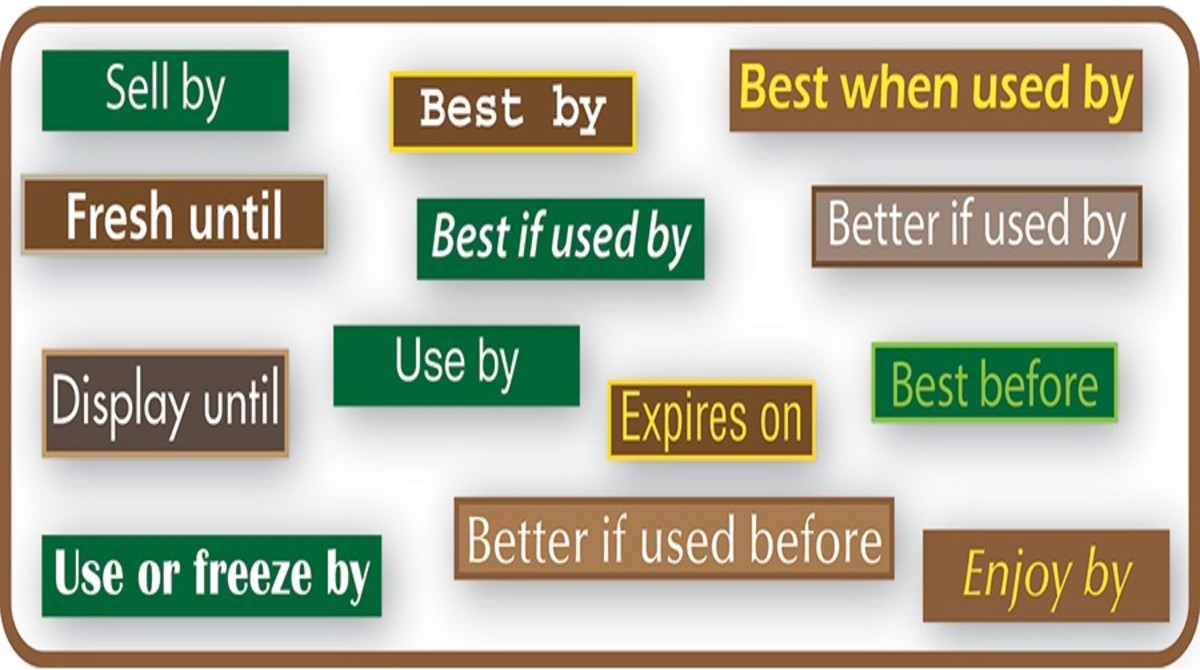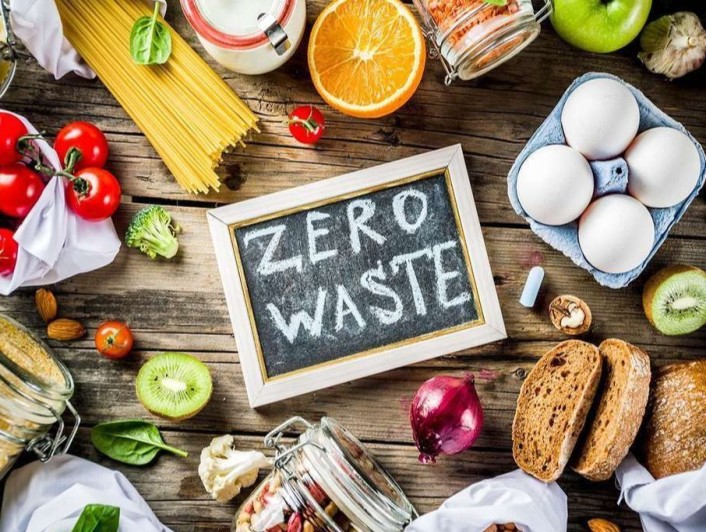Why Date Marking Essential On Food Product Labels?
July 20, 2022

To avoid getting sick from eating unsafe food, knowing the date of manufacture is essential to avoid illnesses.
Date Marking is basically marking your food product label with the appropriate expiry/ use by or best before date apart from the date of manufacture or packaging. It enables a consumer to comprehend for how long the product can be used in terms of safety and quality and hence whether he/ she should buy that product. Date marking is a system to control the growth of bacteria by identifying how old the foods are and hence when they should be discarded.
What is the difference between Best Before date and Expiry Date?
All Food products are date marked with either a use-by date/ expiry date or best before the date to indicate the shelf life of that product. The Food Safety and Standards Authority of India (FSSAI) being the apex Food Regulator of India has in its ‘Food Safety and Standards (Labelling and Display) Regulations, 2020’, specifying the difference in these terms as given below.
1. Best before date
“The date which signifies the end of the period under any stated storage conditions during which the food product shall remain fully marketable and shall retain any specific qualities for which tacit or express claims have been made, and beyond that date, the food may still be perfectly safe to consume, though, its quality may have diminished. However, the product shall not be sold if at any stage the product becomes unsafe.”
Foods kept beyond the best before date are safe to eat however, they may undergo quality deterioration and hence it’s on the risk of the consumer to consume such foods or not.
The key point of this date is that if Processed food products are stored, and handled properly the safety and quality of the food are guaranteed even after its best before date. However, once the pack is opened the best before date is not applicable.
Foods that stay beyond 3 months or 90 days declare best before dates on their products, Examples include breakfast cereals, bakery and snacks, chocolates, etc.
2. Use by or Expiry Date
“The date, which signifies the end of the estimated period under any stated storage conditions, after which the product may not remain safe and the food product probably will not have the quality of safety attributes normally expected by the consumers and the food, shall not be sold or distributed for human consumption.”
This date is important because it signifies that a particular food product cannot be eaten beyond its expiry date or use by date in terms of both quality and safety aspects.
Usually pre-packaged perishable foods such as milk, bread, etc have use-by dates and nutritional supplements, formula foods, etc have expiry dates.
What are the other dates present on a Food Label?
“Date of manufacture means the date on which the food products become the product as described.”
“Date of packaging means the date on which the food product is placed in the immediate container in which it will be ultimately sold.”
FSSAI mandates the listing of both the Date of manufacture or packaging and “Expiry/Use by.” The “Best before date” is the only date that can be declared as optional or additional information.

Quality and Safety indications of dates
Since food poisoning is rampant, date marking is a crucial factor in food product labels. Dates do not just indicate how long the product can be stored, but also indicates the safety and quality of the food product. Use by date or Expiry date indicate safety and caution. Best before date indicates quality along with safety. It’s simple, Expiry date or use by date suggests the shelf life of the product after which a food product is not safe for consumption and should be discarded. Consumption of such foods will increase the chances of food infections. In the case of Best before date, it also indicates the shelf life of a product however, the food product may be still safe to consume from the safety point of view but may not be fully acceptable from a quality point of view. Therefore, it is essential to plan the storage and consumption of food products as per their dates and indicated shelf life in order to reduce food wastage.
Laws on Date marking by FSSAI
The FSSAI (Labelling and Display) guidelines of 2020, under the section of Date Marking, has clearly specified certain mandatory regulations to be followed:
The manner of declaration of the dates is such that the day, month and year should be declared using the DD/MM/YY format for products with a short shelf life of up to 3 months. In the case of products with a shelf life of more than three months, the month and the year shall be declared.
Special conditions for the storage of the food shall also be declared on the label apart from the expiry or use by date.
The Expiry Date shall not be required for:
(i) Fresh fruits and vegetables, including potatoes that have not been peeled, cut or similarly treated;
(ii) All types of wine;
(iii) Alcoholic beverages containing 10% or more by volume of alcohol;
(iv) Vinegar;
(v) Sugar boiled confectionery;
(vi) Food grade salt for industrial use;
(vii) Solid sugars;
(viii) Chewing gum and bubble gum.
The “Date of manufacture” or “packaging” and “Expiry /Use by” shall be grouped together and given in one place on the food label.
Declaration of Storage Conditions
FSSAI has also in its regulations mandated the declaration of storage conditions for food products. This is essential as the validity of the dates indicated depends upon that. If necessary, the storage conditions after opening the pack also need to be mentioned. Apart from this, the instructions for use which include special preparation methods such as reconstitution should be declared on the food product label for health and safety reasons.

How to reduce food wastage?
Food wastage is prevalent globally. India’s food wastage figures for 2020 are very alarming. Approximately 67 million tonnes of food is wasted in India every year, enough to feed the whole of Bihar for an entire year. Apart from the many reasons that contribute to this huge figure, the inability to read and understand the dates on a food pack is a crucial factor. Its important to reduce food product wastage by following a few simple steps:
Meal planning is an excellent way to reduce food wastage. Always check what foods you already have in the refrigerator and only if need be, add in additional stock.
Proper storage conditions for storing food products is very essential. Foods properly frozen or refrigerated stay fresh for longer. Hence, special attention should be given to storage.
Being mindful while grocery shopping is a great way to ensure that only essential food products are bought and chances of wastage are reduced.
Careful in reading the expiry date and best before the date of food products.
Food Businesses themselves should also ensure all the expiry dates or best before dates are checked before procuring raw materials. Storage of food products within the correct time frame is also essential. Food Businesses must follow the FIFO principle, which is ‘First In First Out'. These practices ensure that raw ingredients procured first are made and sent out first for sale. All the food products nearing their best before date should also be cleared out first to ensure reduced food wastage.
Summing it up
Date marking is a significant element of any food label describing the shelf life of a product. It is essential to know the difference between different terms that manufacturers use on food labels such as best before, use by and expiry. Consumers can make thorough decisions on buying a product based on its shelf life, hence date marking is key. FSSAI has given new guidelines (2020) on date marking suggesting mandatory declaration of expiry date or use-by dates on products. This is unlike the previous regulations which allowed either the best before date or expiry date depending on the product category. This new guideline on date marking will significantly change the manner in which consumers judge a product as well as how manufacturers position their products. It’s also essential to be mindful of the prevalent food wastage globally and ensure steps are taken both at the consumer level and Manufacturer level. However, the key here remains food product quality and safety which shouldn’t be compromised.
Also Read - Understand Everything About Food Labels In 9 Minutes
About LabelBlind®
Established in 2018 and based in Mumbai, LabelBlind® specialises in the area of Digitising Food Labelling and Regulatory Compliance. FoLSol® by LabelBlind® presents India’s 1st Digital Food Labelling Solution. The SaaS platform supports Food Businesses to be Labelling Compliant and Build Consumer Trust. FoLSol® by LabelBlind® is designed to strengthen the food labelling ecosystem across a wide spectrum of services including, Packed Food Labelling, Menu Labelling, Exports Labelling, Nutraceuticals and Food Supplements Labelling and Labelling for Ecommerce players. FoLSol® Digital Food Labelling Solution is fast, accurate, and cost effective. The company is ISO9001 certified in its processes.
References
1. Alabama Public Health. What is Date Marking and why is it important?
2. The Food Safety and Standards Authority of India (FSSAI). Regulations. Food Safety and Standards (Labelling and Display) Regulations.
3. Food Standards Agency UK. (March, 2021). Best before and use by dates. Food Safety and Hygiene.
4. Canadian Institute of Food Safety. The Difference Between Best Before and Expiry Dates.
5. Tyagi H (October, 2020). World Food Day 2020: How food waste affects the economy. Times Now News.

Rashida Vapiwala (Founder at LabelBlind®, Food Label Specialist, Ph.D (Food Science and Nutrition))
Rashida is passionate about solving problems for the food industry using technology. She loves creating tech-led solutions in the space of Nutrition.
